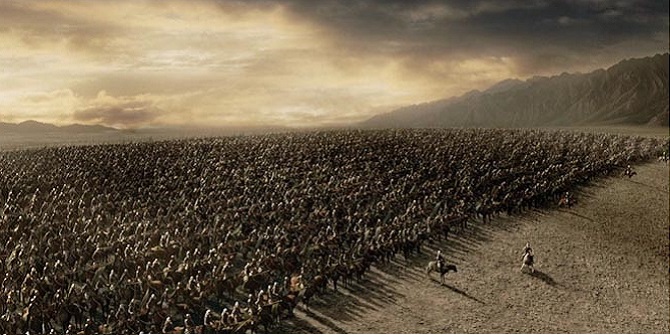
So here it comes. 2000 pages of evidence on how British newspapers behave and why that must change. Maybe some suggestions for how to make it happen through new regulation. Does this matter?
I’ve argued in the past the the Leveson inquiry is an historic curiosity. The judge keeps sidling up to the issue of newspaper decline and the rise of the Internet and then slips back into the swamp of traditional media.
Yet this does matter.
Former Guardian journalist, now Columbia digital professor Emily Bell is wrong. Or at least the headline on her article is: “The Leveson inquiry is irrelevant to 21st-century journalism”.
What Emily actually says is, of course, much more accurate. This inquiry is ‘narrow and historic’. It’s dealing with one, shrinking patch of journalism. But here’s why it is relevant and why it matters.
Firstly, newspapers – even just the printed versions – are still as voluminous and significant in the UK public sphere (and elsewhere) as just about any other journalistic medium. Now add in their online presence. Their websites are read by millions (in fact, the Guardian online is the only thing that keeps Emily’s old home from being a niche publication) and newspaper journalists are all over social networks like Twitter as well as on broadcast where they are influential and informative.
Emily Bell’s excellent new report on ‘post-industrial’ journalism in America cites any number of interesting new journalism enterprises and initiatives. Its description of the trends is very much along the line of my ‘networked journalism’ analysis.
But even in America, the New York Times still matters. It is by far the biggest single source of quality journalism online, dwarfing the output of ProPublica, for example. And like its London namesake, I don’t think it is going to disappear for a while, even in its current format. Nate Silver may not be a conventional journalist, but remember who he works for?
So in the short-term of the next decade newspapers still matter. Their brands and their journalistic resource will also matter beyond that because I am convinced that they are much more resilient than many of us give them credit for.
But – and here I suspect Emily will agree with me – if they are going to survive it is not just about changing their business models, or their production techniques. Though, as the Tow Center report and my own research have shown, that will be fundamental. What also needs to change is their relationship to the audience and their ethical identity.
Leveson will seek to corral newspapers in a traditional, old-fashioned way. That is partly why I stand by self-regulation not statutory. I don’t think it will work and it might have negative effects. But if newspapers have got any sense they will realise that the party is over. The old arrogant, closed culture is no longer going to win them the trust and attention of the public that will make them valued.
So in that sense Leveson really matters. Not because of what the judge says in particular. But because this is a wake-up call, an historic moment when newspapers can chose to live in the past or remake themselves and the way they do their vital work of journalism for the future.
* We have set up a special objective Leveson Blog where you can find loads of links to background articles and current coverage – including international comparisons, academic research and commentary: https://blogs.lse.ac.uk/polislevesonblog/





